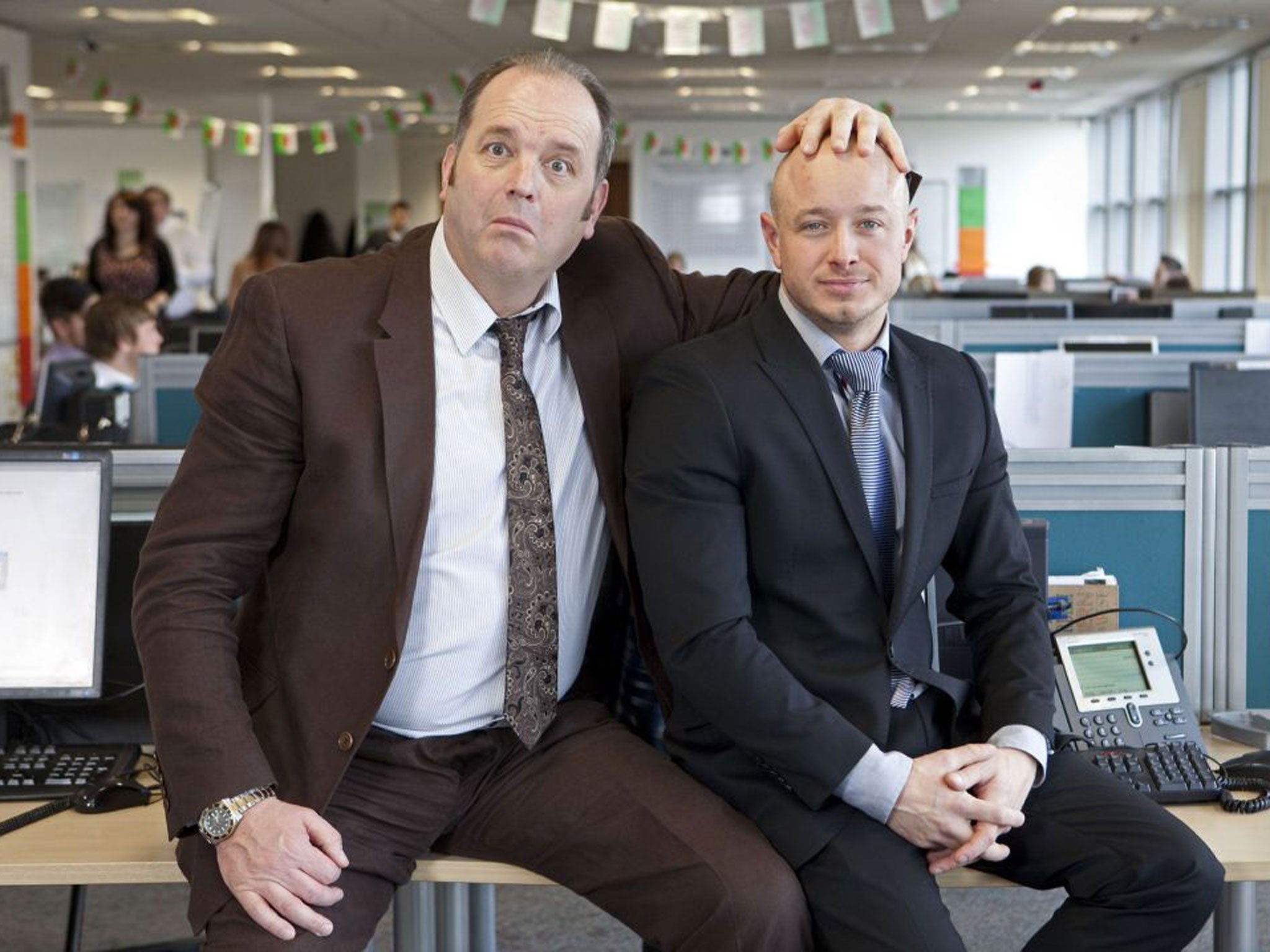Television review: The Call Centre - The oily boss with a touch of Brent crude
A real-life documentary from a UK office shows a Gervais-style mix of toxic bullying and pranks

Your support helps us to tell the story
From reproductive rights to climate change to Big Tech, The Independent is on the ground when the story is developing. Whether it's investigating the financials of Elon Musk's pro-Trump PAC or producing our latest documentary, 'The A Word', which shines a light on the American women fighting for reproductive rights, we know how important it is to parse out the facts from the messaging.
At such a critical moment in US history, we need reporters on the ground. Your donation allows us to keep sending journalists to speak to both sides of the story.
The Independent is trusted by Americans across the entire political spectrum. And unlike many other quality news outlets, we choose not to lock Americans out of our reporting and analysis with paywalls. We believe quality journalism should be available to everyone, paid for by those who can afford it.
Your support makes all the difference.More than a million people work in British call centres, and the average age of the poor bloody infantry of our "service industries" is 26. Which looked about right as the cameras swooped over 700 employees hunkered down in the cube farms of the Swansea headquarters of Save Britain Money. BBC3, the channel broadcasting The Call Centre, wants, above all, for twentysomethings to watch the series, which may explain why the documentary skirted the economic hardships facing that generation and got on with the innuendo, the hard drinking and the vomit of modern office life.
It told this murky tale through three characters: Nev, the fiftysomething CEO, Hayley, the young tea lady, and Kayleigh, the admin assistant. And "characters" are what they remained in the documentary's telling, the seedy boss prowling the office floors doling out his sales mantras ("Smile as you dial!"); the salt-of-the-earth good-time girl putting up with her co-workers' practical jokes ("I've had a gutsful now"); the quiet young woman in admin nursing a heartbreak. What was extraordinary, however, was the to and fro of office chit-chat, which seemed to take its cue from the top of the company. Expressing the belief that "happy people sell", Nev pressed his queasy brand of contentment upon his employees at every opportunity. In particular, Kayleigh, whom he cornered at her desk, extracted from her the betrayal by her ex and then paraded up and down the office inviting "any single blokes, I've got a desperate female here," to her mortification. In case that left any doubt as to his intentions, he reassured us: "I'm hopeful to get Kayleigh laid."
When she hits it off with Dwayne the office lothario at the company speed-dating night, Nev splits them up, on the pretence that "Kayleigh is just too vulnerable to have Dwayne exploiting her". I suppose an iota of self-awareness is too much to expect of a boss who, reposing against his Lever Arch files, declares Napoleon, as his role model.
In truth, you sensed that a heavy hand in the editing suite – I'm not sure Hayley the tea lady will look back on the moment she was filmed cleaning up her own hangover vomit outside the office as representative of her complex, beguiling self. And maybe, just maybe, Nev isn't the real-life David Brent. But the tone of the open-plan office discourse did ring true: a murky, sometimes toxic soup of flirting, bullying and pranks. Cold-calling is not a pleasant occupation, and the staff seemed to go about it with remarkable good cheer. As Nev pronounced: "Friendly banter can motivate everyone." Ah, "banter"! How much hurtful garbage has been ejaculated in its name? As one bewildered young woman observed of Nev after a job interview: "What a character ... unless it carries on."
BBC2's engrossing serial-killer thriller, The Fall (Wednesday ****), concludes this week, and, for reasons good and bad, I'm not sure I'll watch to the no doubt grim end. Control is the abiding motif: the killer is a drop-dead (sorry) gorgeous family man (Jamie Dornan) who works as a relationship counsellor, and kills in acts of horribly ritualistic display; the police officer (Gillian Anderson) pursuing him seems locked in her clinical approach to all aspects of her life; even the setting, Belfast, we're reminded, is a society of rigidly observed sectarian and social boundaries. The music, the photography, the script, the performances, all excellent, are tamped down with the result that the tension has built agonisingly over four episodes. There were signs that the killer's warped ability to juggle his schedule – Kids! Work! Depraved murders! – was crumbling. He responded petulantly to a bollocking from his manager, and, a tad more dramatically, reacted with savagery when one of his meticulously planned attacks went awry.
And yet – the way the camera glides through the drama's numerous scenes of murderous sexual violence towards women makes me deeply uncomfortable. The director, Jakob Verbruggen, has talked about unsettling the audience with the same voyeuristic viewpoint taken by the killer – but when does the price of that aesthetic integrity become too dear? These scenes aren't quite a Calvin Klein advert with added rape, but one or two aren't far off.
Join our commenting forum
Join thought-provoking conversations, follow other Independent readers and see their replies
Comments